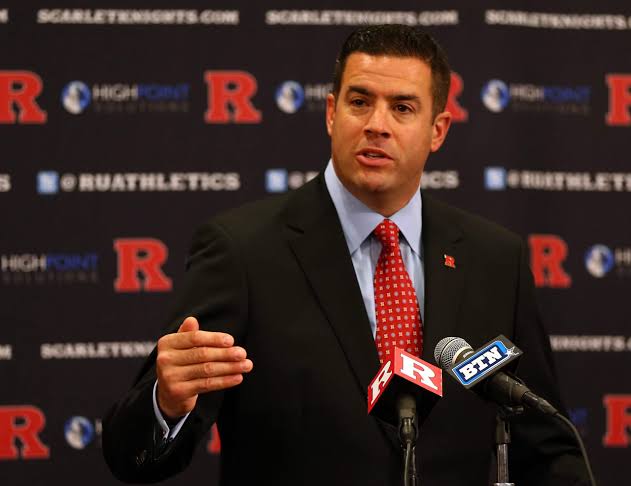

The optimism echoing from programs like USF has been loud and proud. Fans are being told the school is “just fine” as the revenue-sharing era officially begins this July. Athletes across college sports will soon be eligible to receive up to $20.5 million annually per school, thanks to the House v. NCAA settlement. And while Power Four giants are expected to weather the financial storm through mammoth TV deals and donor dollars, the playing field below could tilt even more sharply. The gap between the haves and have-nots is getting real, and the AAC isn’t sitting quietly.
Watch What’s Trending Now!
AAC Commissioner Tim Pernetti made that loud and clear in a candid appearance on 94.3 The Game, offering both a strategic roadmap and a warning, particularly to partners like ESPN. “If I could put one word on it, I would say vibrant. It’s a great time to be a content owner and a content provider,” Pernetti said, acknowledging the media shift. The commissioner also gave ESPN credit for its long-standing broadcast deal with the AAC that runs through 2033. But Pernetti isn’t simply content being a cog in someone else’s wheel. “The days of one network owning everything, I think, are coming to an end.”
His bigger play? Sublicensing. Tim Pernetti emphasized the AAC’s push to expand its reach through ESPN but also license content to other platforms. That’s where the conversation starts to sharpen. “What I love about what our league has done is we’ve pushed everybody to invest more in on-campus facilities and have the ability to produce a game for linear television without bringing in a truck,” he noted. Several AAC schools, he says, already have that capability. “So ESPN can come in and produce a game for big ESPN without a TV truck.” Pernetti sees this tech-savvy production model as a unique selling point—and a subtle flex in the current media chessboard.
ADVERTISEMENT
It’s not just about screens and stream counts, though. Behind this media shuffle is a more pressing concern: survival. The AAC has placed a revenue-floor mandate on its schools, excluding Army and Navy, to ensure minimum athlete payouts of $10 million over the next three years. That may sound manageable, but it’s far from a walk in the park for programs like USF. While the Bulls have committed to fulfilling that baseline, exactly how and when remains murky.
“We wanted to provide flexibility for everyone to get to the ($10 million standard), however, it makes the most sense to them,” Tim Pernetti told ESPN back in March. “What I expect is it’ll be a variety of different approaches. I’m pretty certain many of the institutions are going to exceed ($10 million) in Year 1.”
But even money takes a backseat when it comes to the real stakes—access. Tim Pernetti isn’t shy about his position when it comes to the CFP expansion, and he’s not just tossing grenades at the B1G and SEC. He’s staring down structural inequality. “You can’t take people’s opportunity to earn their way in,” he warned, drawing a clear line in the turf war over postseason control. As the revenue delta grows and media deals get even more exclusive, the fear is clear: consolidation could crush competition.
ADVERTISEMENT
College sports are standing on the edge of something new, and the AAC knows it must punch above its weight to stay in the fight.
ADVERTISEMENT
AAC commissioner’s Playoff plea, ‘let everyone play’
Postseason future may be inching toward consolidation, but American Athletic Conference Commissioner Tim Pernetti isn’t ready to surrender to the power brokers just yet. In a passionate and pointed take, Pernetti made clear his stance on the CFP expansion drama—and his message hits home: don’t kill the Cinderella story.
“Well, my read on the whole thing, given the last couple weeks where everybody had their annual meetings, is that it’s not totally an accurate statement,” Pernetti said, addressing the noise from SEC and Big Ten leadership. “I think where you saw the SEC come out and have a voice was mainly what their coaches said, which is that they did not support an automatic qualifier-based system exclusively.”
Top Stories
Dana White Shares Update On Hospitalized Paddy Pimblett After UFC 324

Michael Strahan Forced to Intervene as Terry Bradshaw Visibly Struggles Amid Calls for FOX to Cut Him Loose

Matthew Stafford Shares Retirement Stance as Sean McVay Issues Statement on Rams QB’s Future After Rams’ Loss

Injured Xavier Worthy Risks Another Major Setback as Chiefs Look to Draft New WR for Patrick Mahomes

Mike Vrabel Threatens to Bench Locker Room for Super Bowl After Patriots Win vs Broncos

Dale Jr. Confronts Ex-FOX Broadcaster Over Hall of Fame Concerns, Urging Recognition for Deceased Veterans

For Pernetti, it’s not about control—it’s about fairness and preserving the heart of the game. “You can’t take the opportunity for people to earn their way in away completely. I don’t think that that will be an acceptable place for fans, for the industry, and quite frankly for coaches in college football.”
ADVERTISEMENT
He’s not asking for a handout; he’s asking for a fighting chance. “In a year where East Carolina, right, is runner-up in our conference championship game and it’s their only loss of the year, but is ranked in the top 15 in the CFP rankings, that they can earn in that large slot in an automatic qualifier-based system exclusively. You take that out…”
And that magic? Gone. What do people love about the NCA tournament? The thrill that anything is possible. He also reflects how the coaches are coming out, saying, “Hey, the at-large system is fine. Maybe let’s think about expanding it so there’s more at large slots, but let’s let everybody play and earn their way in.” And that is the essence on which college football was built.
ADVERTISEMENT
ADVERTISEMENT
ADVERTISEMENT
ADVERTISEMENT



